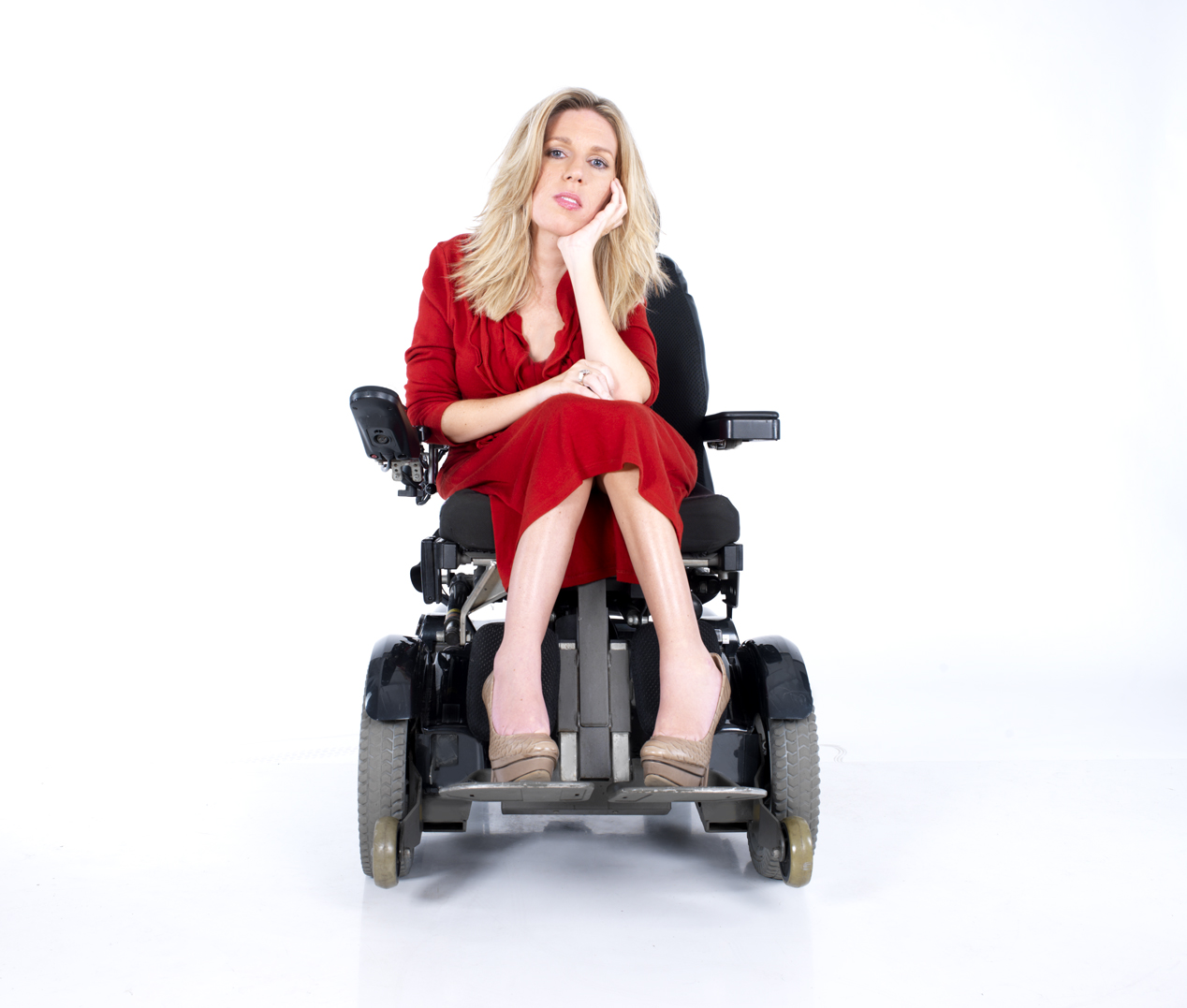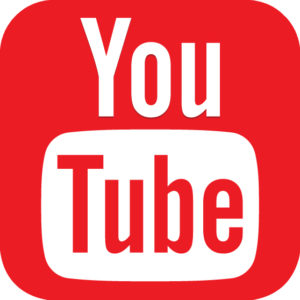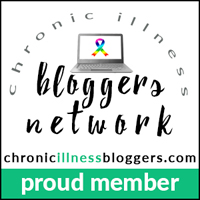Tis the season to talk romance and who better to hear from than our disability community sexpert, Dr. Danielle Sheypuk? Danielle — a licensed psychologist in New York City — discusses dating, sex, society, and disability.
For more information about online therapy, visit daniellesheypuk.com/
On a different note, here’s a webinar with Dr. Sheypuk on Coping with Depression.
Transcript
welcome to glass half full with leslie krongold she shares her stories experiences and knowledge of living and coping with a chronic health condition learn about tools and resources and hear inspirational interviews that help you to live a life filled with quality and dignity with two decades of support group leadership leslie’s ready to help you make lemonade out of life’s lemons are you ready hello as i record the introduction for this podcast episode it’s valentine’s day i’m reminded of very early valentine’s day celebrations in high school where the practice was to buy the huge package of little cards and write them to everyone in your class or almost everyone maybe not the little boy who ate paste because he was kind of scary but everyone else boys and girls the ones you liked and the ones who were brats either in middle or high school the ritual became a bit more complicated we’d pay money to have cupcakes delivered to someone in their class we could have or be secret admirers of course those were the days when your cupcake choices were chocolate or vanilla hard icing on yellow cake one’s graciousness became a bit more selective and no longer were you expected to be nice and all-inclusive as the tip of the hat to this holiday celebrated since the third century i wanted to broach the topic of romance which is complicated for everyone whether you have a disability or not a few years ago i literally found dr danielle Sheypuck a clinical psychologist on facebook she stood out in one of the facebook groups i was in for people with muscular dystrophy i can’t remember her post but i was impressed so i contacted her at the time i was working for a patient advocacy organization and wanted to produce a webinar about depression of course depression is an issue i’d imagine most psychologists can speak to but hearing from someone with a disability would offer so much more than the traditional medical perspective and it certainly did there’s a link to the webinar with dr Sheypuck in the podcast notes so when i realized i wanted to broach romance i remembered that dr shap was known for her work in the disabled community and her work on dating and relationships and sexuality so i contacted her again so just a little bio information danielle schaefek was born with sma spinal muscular dystrophy she was born and raised in a small pennsylvania town but now lives in new york city and she’s known for her advocacy work in the disability community a fashion model and winner of ms wheelchair new york in 2012 as well as a self-described sexpert and leading commentator on the psychology of dating relationships and sexuality for the disabled population tell me a little about your your path your journey to becoming a sexpert for the disabled community yeah so that’s an excellent question and i love it because sexpert is a term that people don’t associate with the disabled community so i like the two paired together and so that being said i chose to study psychology but completely not related to any focus on disability when the at the time when i chose it i just chose it because i liked the theory of it i i liked the whole aspect of talking to people and different concepts of psychological thought and implementing them so that’s really why i went into psychology and then i moved to new york to go to grad school and get my phd because to really be a psychologist and have a private practice you need a phd and again i came to new york with just studying general psychology but it just so happened it coincided with my my idea that if i moved to new york i would have a better chance of finding love for myself kind of right out of the show sex in the city okay i thought hey big city i’m from a small town people in big cities have open minds and i’m not really having much luck dating so maybe i’d have better luck in the city so that’s how that’s how i came to new york and then as i was studying psychology i started dating on match.com which was my first experience dating and online dating and my first physical dates period in person and that’s when i realized or i really saw clearly the discrepancy between dating with a disability and not having a disability and dating because i compared myself to my friends who were in my classes who didn’t have disabilities but we were the same on many levels except the fact that i had a disability and they didn’t and i seemed to be getting much less responses from men than they than they did so at the time i was watching sex in the city and i was thinking you know geez why why isn’t there someone to to ask advice from or or why isn’t anyone talking about this like carrie bradshaw is doing about sex for able-bodied people like there’s really no one that that i know of that i could turn to or talk to or read about or anything like that so so that’s when the two kind of the two paths merged into one and i i got my degree and i i started writing about sex and disability and my own experiences dating and then i started seeing private clients and i wanted to see clients with disabilities and so that’s when i opened my skype practice and so from since that time i’ve seen many many clients with them without disabilities and i’ve given many many lectures about dating and sexuality and through all of that experience i i feel that i can hold the title of sexpert or someone really knowledgeable about sex and relationships and disability and again i like that sex i like the how it’s kind of pop culture because we need that with with disability it’s not always so serious like mixing pop culture and sex and dating and it’s a nice refreshing combination working with people with disabilities i see a lot of low self-esteem when it comes to to dating and viewing yourself as a sexual person and a self-concept that includes seeing yourself as sexy or as a suitable romantic partner or as a potential romantic partner contrasting that to being it being very easy to see ourselves as it’s very easy to see ourselves as not being a desirable romantic partner to someone else so commonly voiced as i don’t really see how anyone could love me quote unquote or i don’t really see how someone’s going to be able to look past my disability and see the person that i am so statements like that and the second piece of that is just society not being exposed to people with disabilities as sexual beings so you know and this goes back in the literature to old notions of disability when we see people as poster childs or trying to to get money from you know corporations or companies using people with disabilities to to get people to give money to help with cures and treatment and and that’s all great and i’m not arguing again against that but there’s a whole other side of disability and and as you know it’s just leading a normal life and being a sexual person and and being able to date but the sad part is is in the beginning it’s it’s hard for society and able-bodied people to see that just because they’ve never been exposed that much so those two factors combined you know the slow self-esteem about dating and then not really having people approach you to date kind of they both reinforce each other and that’s what i’ve been trying to change for a while now and i i feel like change has happened i see it with my clients because i’ve had clients who have come to me saying no one’s ever gonna love me like forget it it’s not gonna happen for me ever and then a little bit down the road guess what i’m engaged i found someone there it’s so great you know so so i’ve seen that and i’ve seen people with very severe disabilities having fantastic romantic relationships giving birth having multiple partners having you know these fulfilling sex lives in various ways so i’ve seen it that way and even in my own personal experience i’ve i feel like i’ve seen a change with the dates that i go out on and again it’s interesting because i’m not sure if it comes from the dates perspective which is the one factor i talked about or my own perspective which is the other factor has has my dating self-esteem increased since i’ve been on this path which is really interesting so you mentioned um your dating self-esteem can you explain what you mean by dateable self-esteem i i think you coined that term right yes i did coin i i love that term i i separated it out i i pulled i parsed it out from the this huge concept of self-esteem because again this is through what i’ve seen and observed and the clients i’ve worked with and even going back to my own teenage years and and into college it’s like this people assume that if you have a disability you have low self-esteem and and you don’t feel good about yourself and how could life be great because you have a disability but the fact of the matter is is many people with disabilities report very satisfying lives in many domains including having a ton of friends being invited to a ton of parties having really supportive families having careers like getting you know being educated to the utmost and then having successful careers but the area that i find continually lacking is that it when it comes to your concept of your sexual datable self so and so you can have amazing self-esteem in all these areas but still feel like love is never going to come your way and i i think it’s important to separate the two and and it also makes it easier to to discuss and to improve because you know if you’ve got if you’ve got it going on in all these other areas and and you’ve identified this you know your struggle with dating and and what i just spoke about then then we could focus on that in treatment and and make it and improve that and improve your odds and you know put love in in your path i’d like you to tell me this story about your mom and you at the mall and then as part of that i’d like you to discuss you know how people should handle personal ads do should people be very upfront and have a photo of them where it makes their disability somewhat explicit or is it something that you know people should refrain from until they get to know the person or when they meet them what what do you think is you know the the best way to to deal with that that’s an excellent question leslie it’s like the question du jour it’s perfect okay so i’ll answer the first one about my mom in the mall it was yeah on multiple occasions you know i was again i keep him i was maybe like 16 or or in my teenage years she would so it was two parts so it was a part and i believe i’ve i’ve told this scenario before too because it’s so relevant and meaty but just being with my sister who is able-bodied and two years younger and and being at my parents house growing up and family and friends coming over and asking her about her dating and does she have a boyfriend and oh i have someone for you and um you know talking to her and me just kind of sitting there quietly awkwardly off to the side not knowing what to say them not saying anything to me so the the messages to me that i picked up was okay this world is not for me this dating world and then couple that with it trips to the mall with my mom and whenever we would see a young man in a wheelchair her elbowing me you know point is like saying hey look look danielle look look there’s someone there’s someone for you there’s someone to talk to and i just couldn’t like reconcile there was this discrepancy for me and it didn’t make sense and i couldn’t i didn’t know what it was but i knew it wasn’t right and i couldn’t reconcile it but you know down the road and currently looking back it’s like it’s this concept of ableism that threads through even our dateable self-esteem so you know with the concept of ableism you you deny your you kind of hide from your disability or you try and hide it as much as you can you know you try and be quote unquote as able as you can and to fit into this able-bodied world as best as you can and make sure you don’t look too disabled and you know this is my own definite i i i know i’m not doing it justice the the full definition of the term but you know in a nutshell so we’re not when you’re a teen it’s a hard time so it’s it’s kind of a time when that when ableism is reinforced and even by the family structure it’s like okay do well in school like go you know be just try your hardest and just so you kind of try not to be so disabled so it’s like okay but why would i want to date a guy with a disability then i’m trying to be normal mom i’m trying to be as normal as possible and this is not blaming my mom this is just in general um so as as you kind of i guess grow into your person and who you are and and kind of boost that dateable self-esteem you come to the realization like you come to the realization that you don’t a disability is not something you have to hide it’s and it sounds cliche but it’s something that makes you very it makes you unique and it’s something that you can embrace and work it you know work that uniqueness work the fact that you’re sassy in a wheelchair or any aspect you can find something great and work it and own your disability and that’s that’s important to in like the growth of of yourself and growing as a person and and because it kind of ties into your next question about dating sites and what should you put on there and so you’re probably gonna guess what i’m gonna say because it feeds right into it but i’m a huge proponent of putting it on your profile that you have a disability because a it’s a part of who you are it’s just a part of it and b people online don’t like to be surprised by things you know you want to be as honest as possible about who you are and and what you look like and and what your interests are why why put something out there that’s concealed or hidden or falsified why waste your time and meet people who might not be the right one for you so that’s my and i i feel like either putting it in the photos or or if you want to write a statement about it and the profile you know whatever way to to mention it it’s it’s in the long run it’s healthier and it’s safe it’s healthier for both parties and it saves it saves time and energy that could be spent on someone that’s that could be better for you yeah it’s you know it’s interesting i’ve been married over 18 years and so my whole i have no experience with personal ads and but i have so many friends you know younger older same age who have and men women disabled able-bodied gay straight so it’s it’s all kind of fascinating because i do wonder how how would i you know how would i handle this because i don’t know i i don’t know what sort of and in my disability you know is something that has been gradual and slowly progressive so first of all congratulations on your 18 years of marriage thank you and before i fear too far away i was listening to what you were saying about how you wonder what you would do if you had to put an online profile up i find that some the theory that’s embraced is uh the so if you decide not to put your disability up the concept is well i want this person to get to know the real me and so i i want them to get to know me first and then i’ll reveal that i have a disability and because we’ll already be at that level where we like each other and they know me and i know them it will be easier you know they’ll accept my disability but the problem is is i find that to not be the case i just find that i’ve never heard of that working i’m sure there’s been a couple cases but i i find that in most instances people feel misled so and and what and you know no one likes to be rejected humanity period doesn’t like to be rejected so that scenario sets yourself up for a huge a potentially huge rejection because not only are you being rejected by someone you like but you’re now being rejected by someone you think has gotten to know you and likes you as a person you know it’s just bad in many ways so that being said yes in my practice i do treat all different kinds of disabilities it’s interesting because problems with love and romance it’s they’re very universal and i’ve said that in my ted talk and we see it in in all the tv shows and i know the bachelor is airing right now and whenever one of the female candidates is rejected she’s her complaint is always like i i just want someone to love me for who i am you know so we can see this this universal concept playing out right in front of our eyes and i’ve no studies to prove it i feel like if you have a congenital disability versus someone sustained an injury or or has gotten a disability later in life it’s like with a congenital disability you’ve never known any other way of life therefore you’ve never known any other self-concept except the one that includes yourself with a disability and hand in hand with that is the notion that you’re not datable or romantically lovable or sexual so with the congenital disability you kind of from the gate you’re believing this or you’re hearing subtle or messages of communicated to you like this whereas with a spinal cord injury you you may have gone through adolescence normally and gone through college normally and i use that word loosely but and you’ve had the chance to love and be dumped and be married and be divorced and so i i think i i think those two worlds can be very different sometimes especially when it comes to the origins of dateable self-esteem
i was with a client earlier today and we were laughing about how i mean she’s several years older now but she originally came to me at the age of 15 she has a disability asking me um coming to me with questions about sex and disability and dating and you know now with hormones happening and these were questions on her mind so you know these are so as soon as people start thinking about romance and dating and sex and that’s when people usually reach out to me so it’s across the spectrum it’s it’s at different different ages different phases of life and when so if someone’s appropriate for for sessions with me it’s mostly the clients that i see over skype it’s people who so the people that it that it really wouldn’t work out it would be difficult or people who have very severe mental health diagnoses so you know people who perhaps are in and out of the hospital with psychiatric hospitalizations or who have you know rampant substance abuse you might need more like really one-on-one kind of intensive but the people who seek me out or have relationship problems or everyday stress or anxiety or depression that kind of we’ve all felt at some point and have maybe been escalated at times depending on stressors and i i could be biased because i’m in new york city and in manhattan but and everyone’s in therapy but therapy therapy in my perspective is a luxury because it’s a time when there’s no other time what other time do you have in your day-to-day life where you have 45 to 50 minutes of your own to talk about whatever you want to talk about basically in a confidential setting with someone who has no there’s no contingencies with this person this your therapist doesn’t know your husband doesn’t know your boss isn’t your best friend so you don’t have to tiptoe or skirt around different topics you could just let it out and be you and tell talk about your problems in a raw way if you want and work on them and and when do we not have a problem that we need to work on
and again this is disability or not across the board yeah it doesn’t stop i thought at a certain age problems would stop but i i can attest to uh they continue different you get a better more tools to manage them but um true yeah you you get more tools to add to to your tool bag and and at the same time so it’s great to be able to use those tools and sometimes you have to use them in a different way you know so maybe you were using that proverbial wrench in one way and now there’s something else and you need an opinion on on how to how to negotiate or manage the situation so and and regarding teletherapy you know we you’ve said several times times in bed practice is mostly on skype it’s really becoming more and more popular so the american psychological association has now has now a designated branch called teletherapy or telepsychology that’s the name it’s been dubbed because what i found is that the concept i i thought it would be easier for people with disabilities to come to therapy eat period full stop but but what i’ve found is that it’s it’s easier for everyone it’s it’s just easier when you don’t have to leave your home and and the therapeutic alliance is the same and some insurance companies do reimburse teletherapy sessions and if you think about it it’s for people who travel a lot for business it’s easier for them you know so they might not have a disability but they’re just constantly traveling or people who who have to spend time in other countries because of their job maybe countries where it’s hard to find a therapist because therapy is so taboo or having mental illness is so taboo and on a funny side note bringing pop culture into it again i i was i was watching girls the other night the hbo show um the premiere and one of the characters said uh to her boyfriend i i need to try this this and this with you because i’ve been working really hard with my online therapist and she thinks that you know x y and z i forget what it was but i was like wow teletherapy is really taking off didn’t lisa kudrow have a show you know the one from friends oh yeah yeah i think it’s web therapy or it was a sitcom where she’s a therapist an online therapist yeah i forget the name now it’s escaping me yeah um but i’ll put that on my uh it’s it’s on my list i’ll just bump it up how could i not see a show on tele psychology yeah so is this a hard time valentine’s day is you know upon us uh is it is it a an annoying time for a lot of people a lot of your clients such an appropriate question right it’s right around the corner i find that for some people it’s a big deal because every every every client everybody’s different but to me valentine’s day kind of falls under the same under the same umbrella as just a holiday for example christmas or thanksgiving or new year’s which so from a psychological perspective or from where i sit as a psychologist i find that what we see on tv about the holidays it does not often depict reality so on tv we see kissing and hand-holding for valentine’s day and beautiful couples loving each other and roses and candy and and for christmas we see everyone holding hands around the christmas trees singing and smiling and and loving and sharing a meal when usually most often than not the holidays are tough and being around being around family is really hard and and at christmas there’s often fights with family members and and it’s often very different from what we see on tv so so that’s a discrepancy that that i think that occurs with valentine’s day you know not everyone has this glorious romantic rose petal filled evening plant where they profess their love to each other so even though if you’re single it might seem that way but but it’s not reality i’ll i’ll second that
and it’s so important because it can if you fall into what the media shows us it can make you feel really bad about yourself and it’s for for nothing really well any any closing advice or well on the topic of valentine’s day i think i would just like to remind people that there’s a lot of satisfaction in telling anyone who’s around you and close to you that you care about them so it doesn’t have to be someone romantic or you’re who you’re in a sexual relationship with so this act alone can bring happiness and fulfillment and keeping in mind that maybe love’s not happening for you right now or on valentine’s day or in the next couple months but there’s no reason that love cannot be in your path disability or not age age irrelevant race irrelevant gender irrelevant sexuality irrelevant all of it irrelevant there’s no reason why it’s not going to happen for you so keep keep focused we all definitely deserve love and um yeah i think it’s humans lot in life to be on this quest again disability or not and that’s important to keep in mind right so now more than ever in times like these yes well thank you so much
thank you for listening to glass half full leslie invites you to leave a rating and review on itunes this helps spread the word to others dealing with chronic health issues for show notes updates and more visit the website glass half full dot online last half full dot online






One comment on “Sassy in a Wheelchair”